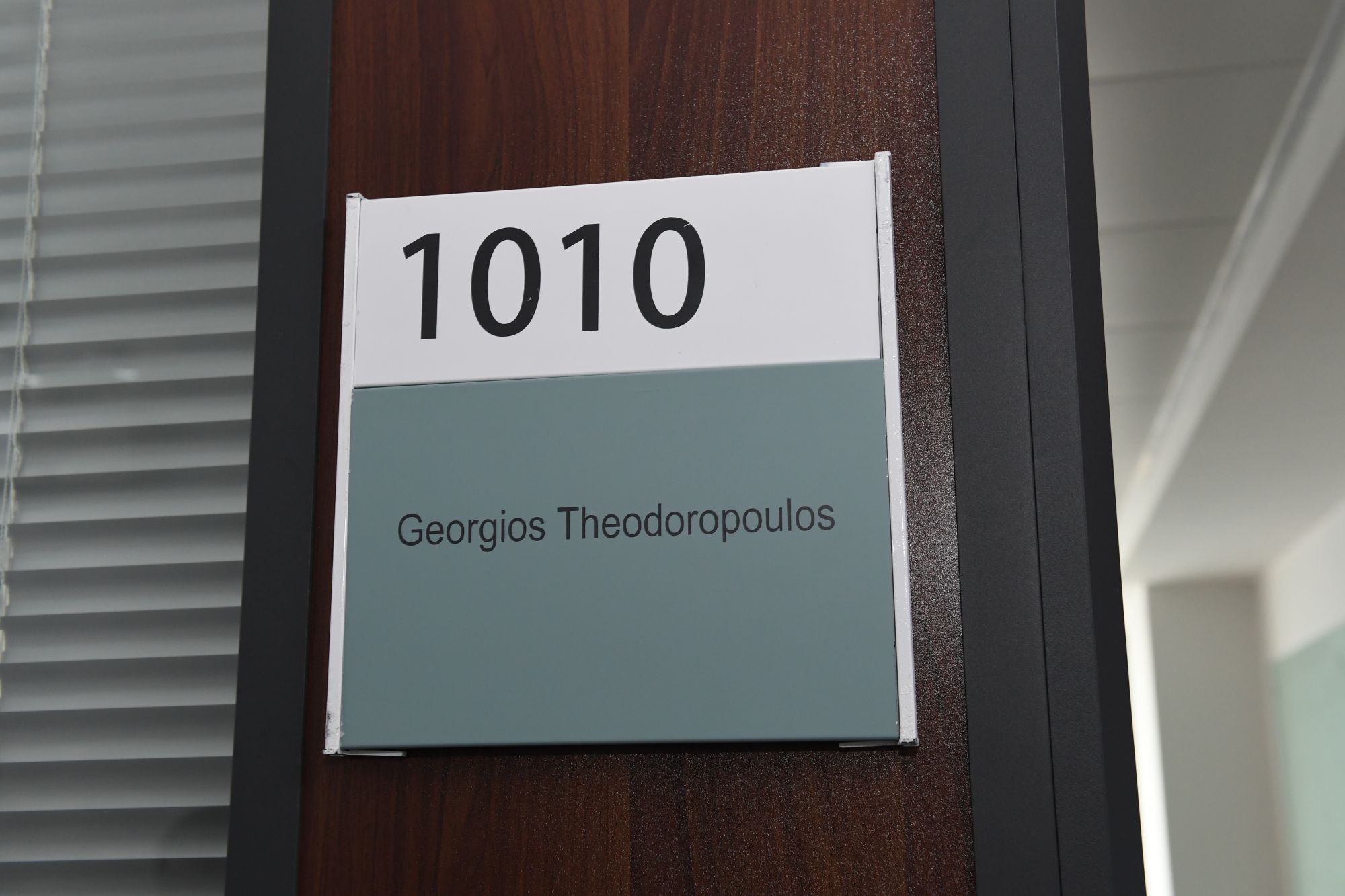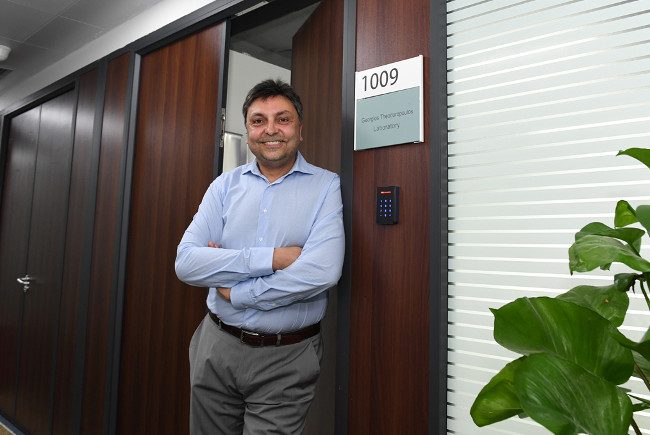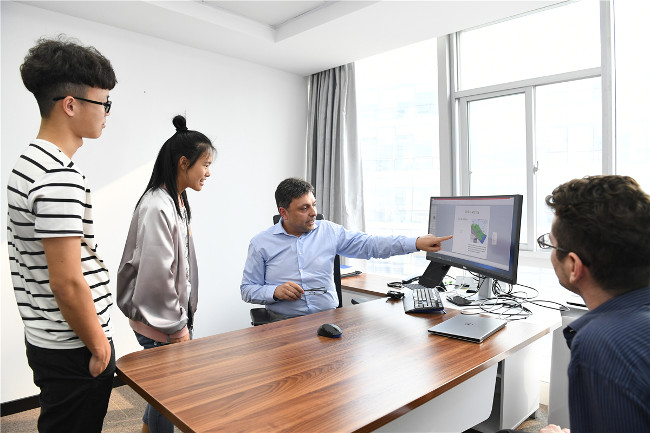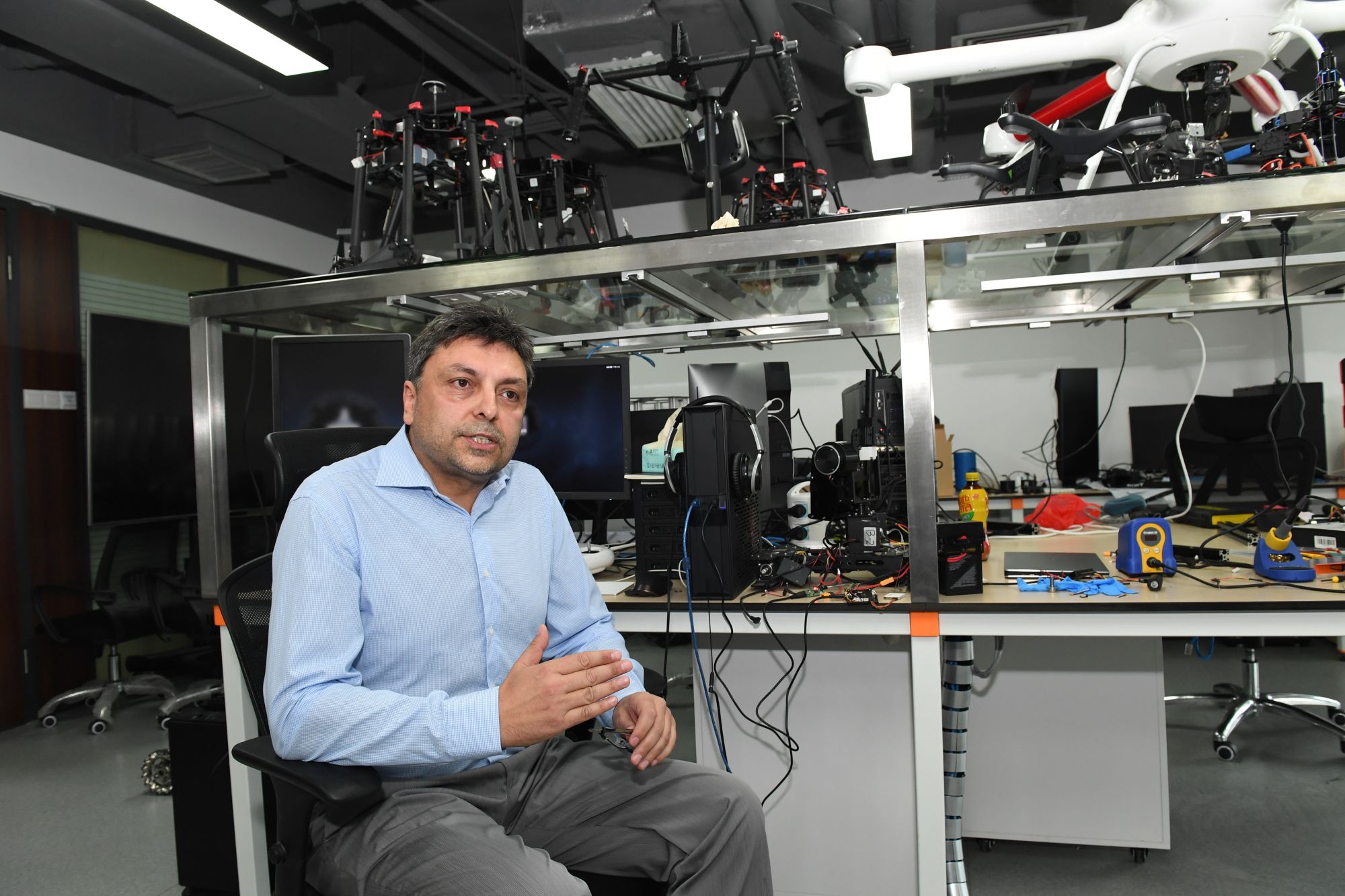SUSTech Staff in the Spotlight - Interview with Professor Georgios Theodoropoulos
The Southern University of Science and Technology has maintained an interdisciplinary research tradition of bringing together researchers from across the world to improve the people's lives in collaborative and innovative approaches.

Why do leading researchers choose SUSTech?
In general, research opportunities at China’s top universities are very good, especially at the top research intensive universities. This is because government funding has been abundant and investment in the higher education system has been strong and sustained. This is the case with SUSTech, a public research university established and funded by Shenzhen Municipality.
The world leading researchers come to SUSTech to immerse themselves into the interdisciplinary research environment, nurturing creative future leaders and enjoying their life in China.
They work with industry, government and not-for profit organisations in China and overseas to challenge current thinking and offer new solutions that change our world.
Hear from one of the our leading researchers on why he came to SUSTech.
Professor Georgios Theodoropoulos is chair professor at SUSTech's Department of Computer Science and Engineering since February 2017. His research area includes Big Data Computing, Systems, Simulations and Analytics.
He received the ACM Best of Computing award in 2014 as well as multiple Best Paper awards throughout his career; combined with his senior scientist experience for IBM's research programme, he is considered as one of the leading scholars in the field of Computer Science and Engineering.

- Can you tell us about your academic and professional background? Where did you work, research and teach before?
I am a Computer Engineer, the focus of my work is systems. I did a 5 year Engineering degree in Greece, and I then moved to the UK at the University of Manchester on a Scholarship to pursue a PhD. Manchester University has been a pioneer in building computers and I had the opportunity there to immerse myself in that pioneering and innovative spirit of some of the fathers of the field that had Manchester University as their staging ground – Alan Turing’s house was just around the corner, Tom Kilburn was still around, but also a newer generation like Stephen Furber, the designer of the ARM processor which today drives our iPhones and billions of other devices too. As a matter of fact I was lucky to have Stephen Furber as my PhD advisor. All this had an immense impact on me as a person, a scientist and an academic.
Following that I spent several years in academia; Birmingham University, Nanyang Technological University, Trinity College Dublin are Universities I have been affiliated with. I left academia to take up a senior scientist position at IBM Research where I helped set up the IBM Exascale systems research programme in Europe at the company’s Smart Cities Technology centre. I returned to academia as the Executive Director of an ICT [information and communications technology] driven multidisciplinary research institute, the Institute of Advanced Research Computing at the University of Durham in the UK, which proved a very successful venture with several programmes in CyberSecurity, Big Data and Cognitive Computing, High Performance computing, Social Computing and Digital Humanities. SUSTech is my next stop.
- What made you want to come to work in China?
Well, it is an exciting time to be in China. While the west is shaking, some even say declining, China is racing ahead. China is leading global production and trade, and increasingly global innovation. It was only last year that China built the world’s fastest supercomputer and unlike the previous fastest machine, also made in China, the new one used only Chinese chips. The world’s biggest radio telescope and the world’s first quantum-communications satellite came out of China in that same year. So this is where the future is defined – right here in China, right now - and I felt wanted to be part of this!
How about Shenzhen?
The city of Shenzhen is at the core of these developments. I think it epitomises China’s use of industrial policy and massive capital investments to master emerging technologies and foster innovation. It is not an accident that Shenzhen is considered “the new Silicon Valley,” and the “maker’s dream city,”. This is the epicenter of high-tech design and manufacturing in the world and home to Tech giants, global innovation leaders, designers, and entrepreneurs. Everywhere you look there is a tech startup. Not many places in the world are like this. For a Computer Science researcher, this is a dreamland. For me, the other major reason that attracted me here is of course SUSTech.
And finally what made you want to come to SUSTech?
SUSTech makes great efforts to attract world class international scholars. I came to SUSTech as a result of an international recruitment effort by the University to set up its new Computer Science and Engineering Department. SUSTech had been making headlines in the international academic circles for quite sometime as an experimental platform to reform the Chinese higher education system and as a catalyst to increase the level of globalization of China’s research and strengthen its position as a world power in science.
This mission together with the vision of SUSTech to become one of the world’s top Universities in a very short time and its emphasis on very high standards and research excellence are very attractive and exciting prospects. The perception has always been that the research and academic ecosystem in China is imitative, not innovative. I don’t know to what extend that is true, but after three months in SUSTech I can say with confidence that this is certainly not the case here and SUSTech is on a path to change that perception for good!

- How was your experience arriving in Shenzhen?
Extremely pleasant and the University makes every effort to make settling in of new arrivals as easy and smooth as possible. Shenzhen is an international metropolis, very modern, clean, very well organised, with a modern bilingual subway system and quite multicultural. I don’t speak Chinese yet I never had any major problem and I feel quite comfortable living in the city.
- Can you introduce your department of Computer Science, and its role in Shenzhen.
The Department of Computer Science and Engineering at SUSTech is very new, it was founded in 2016. At the moment we have 12 academic staff including four chair professors. We are expected to grow to 50 faculty members eventually and we are currently actively recruiting. This is a very challenging and time consuming effort. We are building a world class Department, we have very high standards and are looking for global scholars with world leading research and very strong track records. We are building capacity in Data Science, Artificial Intelligence, Computer Systems, Cognitive Robotics and Autonomous Systems and Cybersecurity.
Being in Shenzhen, the Silicon Valley and the high tech centre of China, the Department has clearly a strategic and leading role to play in the innovation agenda of both SUSTech and the City.
Computing is now acknowledged as the third pillar of scientific discovery, alongside theory and experimentation, across all domains of science as well as in social science and the arts and humanities.
Our mission as Computer Science researchers should be not only to strive for academic excellence pushing the frontiers of our own discipline but also to make sure that our work is grounded to real world problems. Our research should have tangible benefits to society. Such progress is only achieved through interdisciplinary research and collaboration with industry. And so building a strong research and innovation ecosystem with other Departments in the University and local industry is amongst our top priorities.
And of course as an academic department, our role is to train a new generation of students to become creative minds, independent thinkers, and problem solvers to fuel Shenzhen’s and China’s innovation revolution and economic growth.
- Can you explain to us in very basic terms how computer science research can affect our daily lives or the applications we use everyday?
As I mentioned, computing now accelerates the pace of discovery and innovation in nearly all fields, from predicting the weather to discovering new drugs for cancer. And it is computer Science research that has made all this possible.
Indeed advances in computer science and engineering have profoundly transformed our lives! Can we even imagine a day in our life without the internet, the web, and our smart phone? From cars and traffic lights, to medical record systems and equipment, to entertainment platforms such as movies and games, to bank ATMs, everything now is either run by or made by computers. Today there are more computing devices in the world than humans!
And there is more to come. The so called Big Data technologies combined with rapid advances in Artificial Intelligence will have a disruptive impact not only in our daily lives but in the way our societies are organised. This emerging powerful Computer Intelligence will lead to an unprecedented degree of automation with effects similar to those of the Industrial Revolution, certain jobs will disappear, others will emerge and so on. In the end our world will be a better one as a result, but in the meantime we should prepare ourselves to adapt to the change.

- Do you miss anything from your home place, and did you have any difficulties adjusting to China?
Not much to be honest. Shenzhen provides everything one might ask for. A very vibrant metropolitan lifestyle, cuisines from all over the world, a thriving cultural scene and nightlife, with theatres, galleries, live music you name it. Despite its size, it is very green with a tropical feel full of calm and peaceful oases. Short mild winters, long summers and amazing beaches - what more could a native of the Mediterranean like myself ask for?
- If you had a message for the computer science community around the world, what would it be?
We have reached the point where advances in our field is now the key to solving the world’s most crucial problems - environmental sustainability, poverty, health, security. We should rise to the challenge and use our valuable skills and knowledge to make this world a better place.
Professor Theodoropoulos has dozens of years of experience teaching in top universities like Durham, Birmingham and Dublin and this rich experience is very much palpable during his lectures. In front of his group of 3rd year students, he teaches Cloud Architecture in a way that is straight-forward, interesting and inclusive of the students, asking them questions and challenging them constantly so that they are actors and not simple spectators of the class, something which is possible because of the particularly small number of students present. The students say they enjoy the class very much, and especially appreciate the fact that it is taught in English, which gives them the necessary knowledge to enter the international industry much more easily than if it was in Chinese.
In a field that is overloaded with acronyms and technical jargon, he reminds the students to see through the hype, the different programming languages and technical details and focus on the core of their subject – giving the computer the instructions for what you want it to do.


